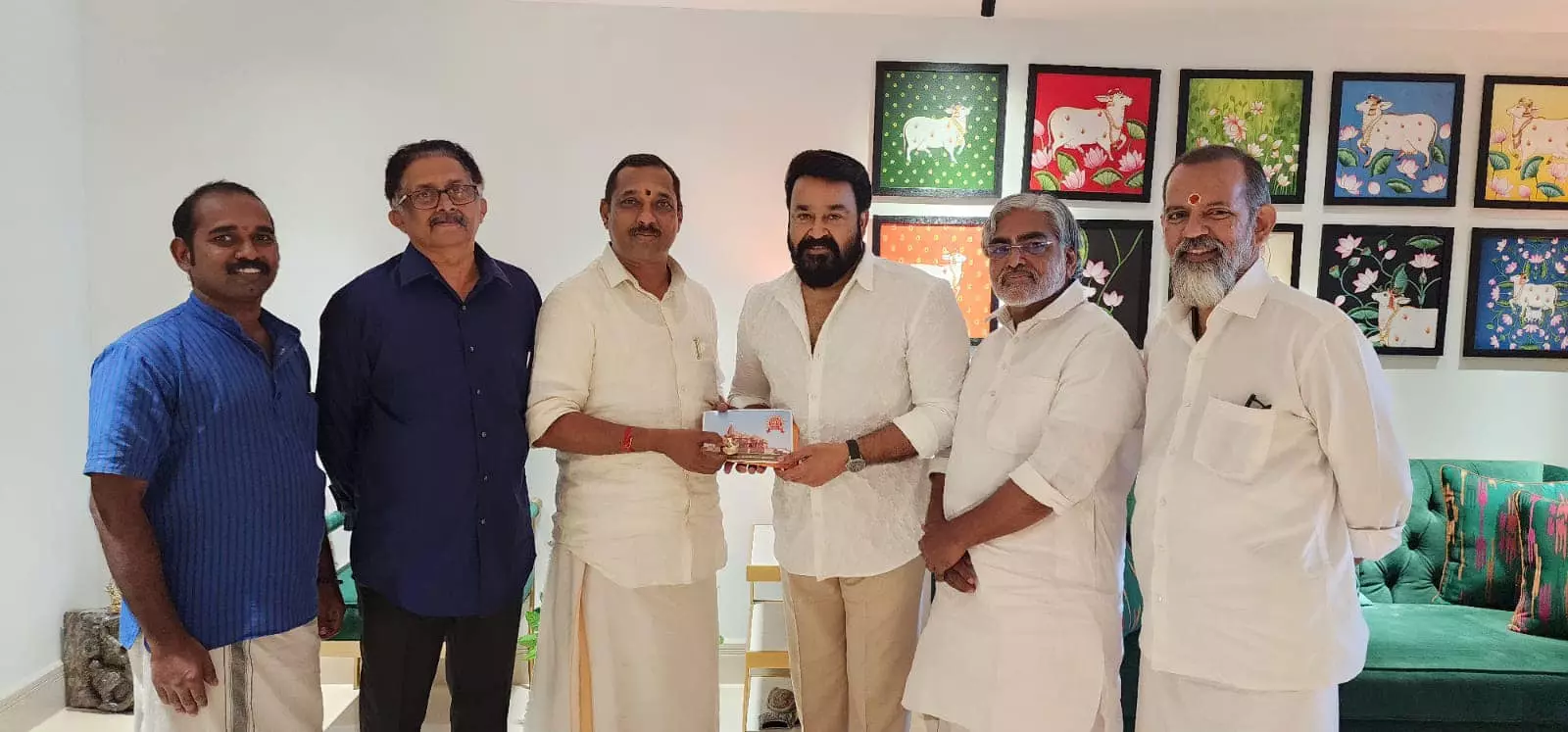
Kerala: Singer Chithra's Ram temple video draws flak amid growing acceptance for Hindutva
KS Chitra had released a video urging the public to recite chants dedicated to Lord Ram and illuminate their homes to celebrate Ram temple's consecretion ceremony in Ayodhya

On January 13, vocalist K S Chitra released a video on social media urging the public to recite chants dedicated to Lord Ram and illuminate their homes with five-pointed lights, to celebrate the consecration ceremony of the Ram temple in Ayodhya.
The video was recorded after Sangh Parivar activists visited her with the Akshat (rice mixed with turmeric and ghee) from the Ram temple, as part of their campaign to promote the ‘Pran Prathista’ ceremony on January 22 at Ayodhya. Actor Mohanlal, Dileep, director Joshiy and Sreenivasan are among those who have accepted the same Akshat from the Sangh Parivar activists.
K S Chitra's endorsement, in particular, generated discontent within the Kerala political landscape. Moreover, her endorsement of Ram temple comes closely on the heels of actor Shobana’s participation in the BJP woman’sconvention at Thrissur inaugurated by Prime Minister Narendra Modi.
Despite Chitra presenting it as an act of devotion to Lord Ram by reciting the mantra Loka Samasta Sukhino Bavantu, her video has not gone down well with the Left and Centre of the Kerala polity.
'A cruel act'
After the video got traction, Chitra faced a lot of criticism from various quarters, including cultural and political figures. Indu Menon, renowned Malayalam author said, "Chitra is entitled to her freedom of expression, but endorsing something associated with genocide and massacre, no matter how seemingly innocent, is a cruel act. The repercussions may result in people suffering harm." And, she added that reciting countless chants or lighting five-pointed lights ‘won't summon the presence of Ram or Vishnu’.
Playback singer Pushpavathi Poyppadath wrote on Facebook that she refused to accept the Akshat from the Sangha Parivar activists who came to visit her.
“Whatever meaning they perceive to the word Akshat, in Malayalam it means ‘hurtless’. I believe the Ayodhya Ram temple is built by hurting an entire community, and I am not receiving anything from there. I am a believer, and I have performed Hindu rituals even on my last birthday, which always gave me comfort and peace, but this is something different,” pointed out Pushpavathi.
“Chitra should have understood the fact there was a difference between Gandhiji’s Rama and Godse’s Rama,” said K T Kunhikkannan, CPI(M) leader.
VHP support
On the other hand, Viswa Hindu Parishad (VHP) came out in staunch support of Chitra, slamming the CPM and the Congress for minority appeasement politics.
“The VHP expresses solidarity with Chitra and all others supporting the Ram temple, considering any attack on her as an attack on Hindus. This scenario is seen specific to Kerala, but those who consider Bharat as their nation are urged to stand up in defense of Chitra,” said Viji Thambi, VHP state president.
According to political observers, the Akshat distribution drive for the Ram Temple consecration ceremony underscores the Sangh Parivar's unwavering commitment to its Hindutva agenda, even in states like Kerala with limited electoral impact.
Ayodha impact in Kerala
In the late 80s, during the Ayodhya movement, the RSS conducted a door-to-door campaign in Kerala, but this effort was met with limited success. The organisation struggled to integrate into the cultural fabric of Kerala, with only a few exceptions such as poets Akkitham Achuthan Namboothiri, Vishnu Narayanan Nampoothiri, P Narayan Kurup, and Sugatha Kumari, who backed them to a certain extent.
This time, however, they have made considerable headway in reaching out to scores of people including prominent citizens. Even a minister in the Pinarayi Cabinet, K B Ganesh Kumar of Kerala Congress-B, is among those who accepted the Akshat from RSS volunteers, which caused some embarrassment for Left parties. Congress MP Shashi Tharoor, too, has made it clear that he would visit the temple and offer prayers.
Open support
Sreejith Kadiyakkol, a university professor in Bengaluru, said that he is pretty sure that the majority of Hindus in India have no objections to the demolition of the Babri Masjid and the construction of the Ram Temple at that site.
“However, due to the events being labelled as a riot, many celebrities refrained from expressing their joy at the time, fearing potential damage to their secular image. Now, with the Supreme Court legitimizing the construction through its 2019 verdict, these individuals are openly expressing support,” he said, adding that it's worth noting that a similar response may not be expected for the Sabarimala verdict.
With caste-based community organizations like Nair Service Society (NSS) and Sree Narayana Dharma Paripalana Yogam (SNDP) endorsing the consecration ceremony, the Sangh Parivar aims to leverage their support for electoral gains.
They nearly succeeded in eroding the voter base of the two rival fronts: the CPI(M)'s Ezhava votes through SNDP and the UDF's Nair votes through NSS, particularly following the Sabarimala controversy in 2018. In the 2019 general elections, BJP candidates garnered a substantial number of votes in southern Kerala, even though they did not secure a seat.
Counter strategy
The ruling CPI(M) is formulating a counter-strategy, with its youth wing DYFI trying to rope in cultural figures and prominent personalities for its upcoming human chain protest against the Union government.
DYFI's human chain protest, scheduled for January 20 from Thiruvananthapuram to Kasargod, aims to address the ‘neglect’ of the state by the Union government. In parallel to the Sangh Parivar's Akshat campaign, the Left youth leaders are conducting a door-to-door campaign, engaging with celebrities. DYFI leaders have already contacted several actors and cultural figures as part of their outreach efforts.
The door-to-door campaign sets the stage for a final showdown preceding the general elections, with the Congress yet to enter the fray, as their election strategy primarily focuses on leveraging the anti-incumbency factor.

